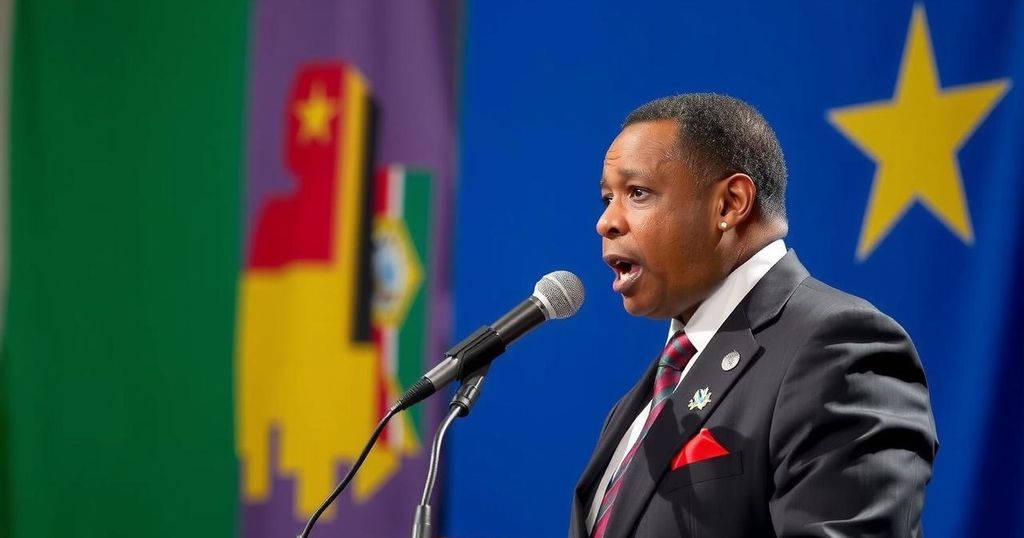Mauritius Prime Minister Acknowledges Defeat in Legislative Elections
Mauritius Prime Minister Pravind Jugnauth conceded defeat in the recent legislative elections, indicating a shift toward opposition leader Navin Ramgoolam. The vote followed a controversial campaign marked by a wire-tapping scandal and public discontent over living costs despite economic growth. Both leaders proposed reforms, with the elections underscoring pressing concerns regarding governance and democracy in Mauritius.
On Monday, Prime Minister Pravind Jugnauth publicly acknowledged that his coalition was likely to face a substantial defeat in the recent legislative elections, which indicates a shift in power towards the opposition. Although final results from Sunday’s polling have yet to be disclosed, opposition leader Navin Ramgoolam appears poised to assume the prime ministership for a third time, leading his Alliance of Change coalition. During a press conference, Jugnauth remarked, “The people have chosen another team to lead the country,” emphasizing the need to respect the democratic decision of the electorate.
The elections were structured under a winner-takes-all model, with 62 seats contested in the 70-seat National Assembly, while the remaining eight seats will be allocated based on the “best loser” system. Issues during the election process included some delays primarily attributed to incidents as officials transported ballot boxes to counting centers. The election follows a challenging period for Jugnauth, who only recently celebrated a significant agreement with the United Kingdom regarding sovereignty over the Chagos Islands.
Accountability concerns surrounding his leadership arose amidst a controversial wire-tapping scandal, where confidential communications were leaked online just prior to the elections, leading to a temporary ban on social media. This incident exacerbated worries regarding the erosion of civil liberties and democratic integrity in Mauritius, a nation known for its relative stability in Africa. Meanwhile, both Jugnauth and Ramgoolam promised reforms and enhancements to address the cost of living and corruption, reflecting the public’s urgent needs amidst economic growth.
Mauritius has long been recognized as one of Africa’s most stable democracies since gaining independence from Britain in 1968. The current political landscape is dominated by two powerful families: the Jugnauths and the Ramgoolams. Prime Minister Pravind Jugnauth has governed since 2017, while opposition leader Navin Ramgoolam has held the premiership in two previous terms. The recent elections were marked by significant controversies, including a wire-tapping scandal that raised concerns about governance and the integrity of democratic processes. Despite economic growth, citizens have expressed dissatisfaction regarding the cost of living and governance issues, making these elections critical for the future of Mauritian democracy.
In conclusion, the recent legislative elections in Mauritius herald a significant potential shift in government, with Prime Minister Pravind Jugnauth conceding defeat to opposition leader Navin Ramgoolam. This election highlights ongoing concerns about governance, civil liberties, and public trust in the political system. The necessity for constitutional and electoral reforms has been recognized as vital to ensure that Mauritians’ voices are adequately represented and their rights safeguarded in the face of evolving political dynamics.
Original Source: www.bellevueheraldleader.com




Post Comment